Román Gubern
Рождение : 1934-01-01, Barcelona, Spain
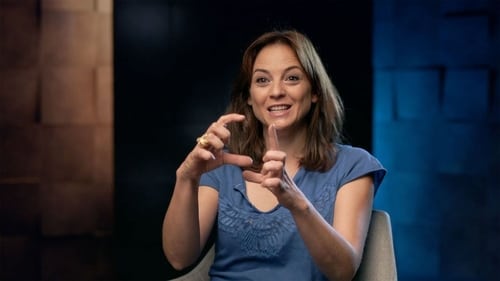
Himself
The 70th anniversary of the “Fotogramas” magazine comes in the shape of a sentimental voyage through the history of Spanish cinema thanks to a mosaic of voices represented by people who make films, those who write them and those who consume them. The documentary pays tribute to the readers of “Fotogramas” helped by the leading figures of Spanish cinema, who will read to the camera the most representative letters received at its offices in the history of the magazine.
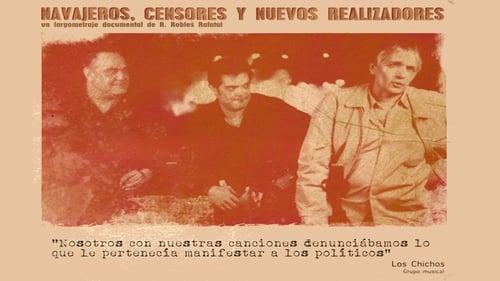
Himself
Spain. 1978. Year of the first democratic elections following the dictatorship, and of the birth cine quinqui (delinquent movies): films that rapidly became a big commercial success, showing things that were banned by the censorship not too long before.

Himself
The life of Paco Martínez Soria (1902-1982), one of the most famous and beloved Spanish actors, both on stage and screen; a comedian, a theatrical producer, an idol for the masses. A celebration of the uncommon gift of making people laugh.
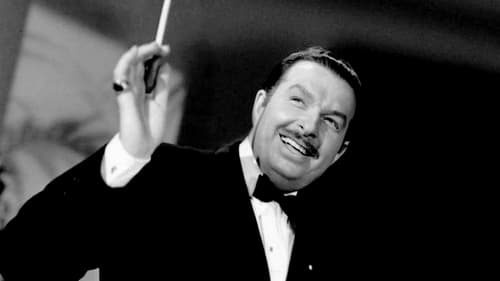
Self - Film Historian
A joyful tale filled with music. The rise of radio. The jazz big bands. The legendary clubs and ballrooms. The soundtracks of the great musical films and TV shows. Sex and romance, gangsters, luxury cars and palm trees. From Barcelona to New York, with a stop in Cuba. The birth of Las Vegas. The sound of the maracas. Chihuahuas everywhere. The incredible life story of Xavier Cugat (1900-90).

Himself

Self - Audiovisual Historian
A vindication of the role of the technicians and artists who made spaghetti western genre possible, and a walk through the landscapes that made it possible to recreate in Spain, mainly in the desert of Almería, hundreds of adventures set in the remote American Far West.
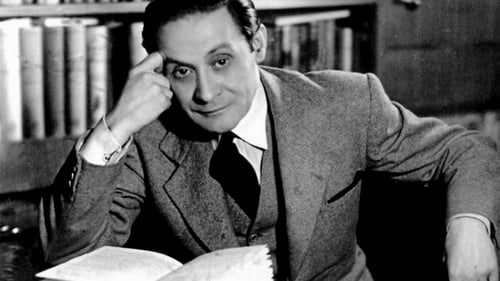
Self
The Spanish author Enrique Jardiel Poncela (1901-1952) was one of the best comedy writers of all time, a novelist and newspaper columnist, misunderstood, even censored, both by the Second Republic government and Francoism, an outsider ahead of his time; also a filmmaker and screenwriter in Hollywood, architect of a revolutionary theatrical building and scenographer, cartoonist and illustrator. An implausible genius.
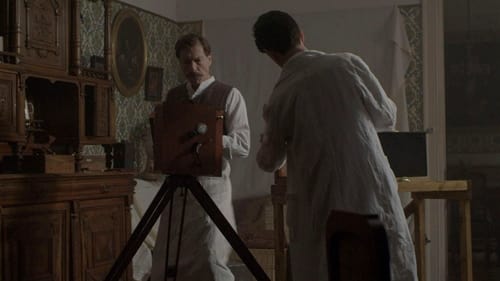
Self
The extraordinary life of cinema pioneer Segundo de Chomón.

Himself
Ten Spanish intellectuals (Santiago Carrillo, Fernando Savater, Elena Ochoa, Roman Gubern, Carlos Moya, Luis Gonzalez Seara, Javier Tomeo, Xavier Rubert de Ventós, Antonio Soler, Nuria Amat) philosophize about life, eroticism, humor, irony , suffering, suicide and death.

Himself

Documentary about the history of experimental cinema in Spain. FRAGMENTS is a historical survey of “the other” Spanish Cinema — films that brazenly explored their artistic, poetic and conceptual potential. Spanish experimental cinema can be glimpsed in a series of important yet isolated events that FRAGMENTS compiles through various firsthand accounts, film excerpts and documents. For the first time in Spain, a documentary brings together the most relevant of a cinema that is slowly losing its invisibility.
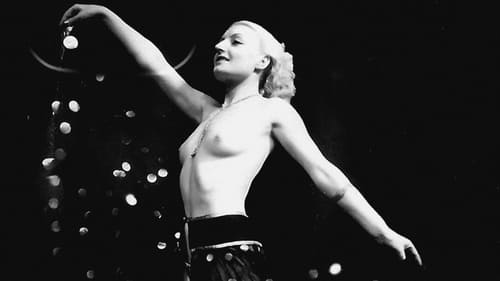
Himself
Upon the outbreak of the Spanish Civil War in July 1936, the anarchist union CNT socialized the film industry in Spain, so in Madrid and Barcelona film workers took over the production assets and, between 1936 and 1938, numerous films on a wide variety of topics were released, composing a varied mosaic that gives rise to one of the most unusual and original moments of Spanish cinematography.
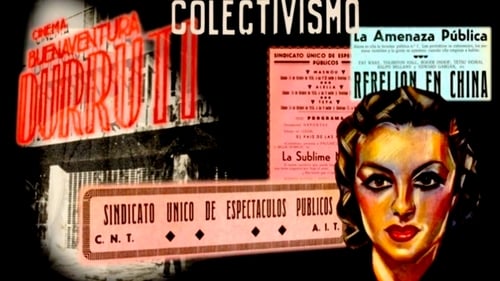
Himself
July, 1936. The terrible Spanish Civil War begins. When the streets are taken by the working class, the social revolution begins as well. The public shows are socialized, a model of production and exhibition of films, never seen before in the history of cinema, is created, where the workers are the owners and managers of the industry, through the unions.

Self - Film Historian / Screenwriter
The Spanish Civil War (1936-1939) caused a great impression on the lives of most of the American artists of that era, so many movies were made in Hollywood about it. The final defeat of the Spanish Republic left an open wound in the hearts of those who sympathized with its cause. The eventful life of screenwriter Alvah Bessie (1904-1985), one of the Hollywood Ten, serves to analyze this sadness, the tragedy of Spain and its consequences.

Preso republicano (uncredited)
In 1939, Ramón was a young man, caught up in his Barcelona family's involvement on the Republic side in the brutal Spanish Civil War. He and his family fled into exile ahead of Franco's troops. Now it is many years later, and he has come back to see how his old homestead fared in the intervening years. The only person he can find who is able to remember those years clearly is his family's old butler Claudio.

Screenplay
In 1939, Ramón was a young man, caught up in his Barcelona family's involvement on the Republic side in the brutal Spanish Civil War. He and his family fled into exile ahead of Franco's troops. Now it is many years later, and he has come back to see how his old homestead fared in the intervening years. The only person he can find who is able to remember those years clearly is his family's old butler Claudio.
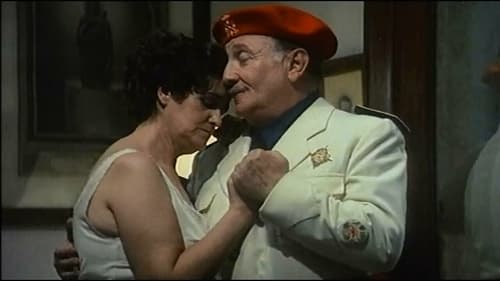
Screenplay
Pepe Soriano plays a Madrid shopkeeper who is kidnapped by henchmen of Franco in this political comedy. After his kidnapping, he is forced to become the dictator's double for many official ceremonies. Due to his long and unexplained absence, Pepe's wife believes her husband has been abducted and killed, so she tries to reach her husband through spiritualism. After Pepe surprises her with a nocturnal visit, he tells her he will touch his ear to signal it is he and not Franco in public appearances.
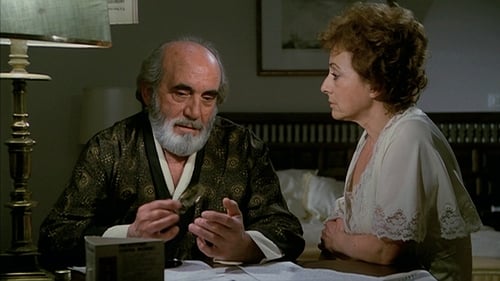
Writer
A Nobel prize winner returns to his natal city looking for his home.

Story

Dialogue

Self

Writer
Documentary about the Spanish Civil War.

Writer
A husband and wife are taken hostage on their boat.

Writer
Documentary made immediately after Franco's death, which includes interviews with the dictator's sister and with Alfredo Mayo, the actor who played the lead role in the film 'Raza'.

This film turns on two basic axes: the inquiry into ways of cinematographic representation and a critical image of official Spain at the time of the Franco dictatorship. “Montage of attractions” and Brechtianism in strong doses. Umbracle is made up of fragments (some are archive footage) that resound rather than progress by unusual links, with dejá vu scenes that promise us more but remain tensely unfinished. Jonathan Rosembaun said: “few directors since Resnais have played so ruthlessly with the unconscious narrative expectations to bug us”. Learning from the feeling of strangeness caused by Rossellini as he threw well known actors into savage scenery in southern Europe. Portabella makes Christopher Lee wander around a dream-like Barcelona. Without a doubt Portabella’s most structurally complex and most profoundly political film, that is ferociously poetic.

Director del psiquiátrico
A drug has been discovered, Liberxina 90, which will erase "establishment" conditioning from the human mind. It has fallen into the hands of some diversely anarchistic revolutionaries who spend most of the film discussing how and whether to use it; should they wait for the forces of "history" to undermine society or speed things up using the drug? They are finally forced into action by the police who are, somewhat ineptly, hunting them down.

Screenplay
David (Mark Stevens) is a physician who returns to Spain 30 years after his involvement in the Spanish Civil War. Now a member of a medical convention, he looks up old friends and finds his former lover, now a married woman with a flamenco-dancing daughter. He and the daughter (Manuela Vargas) have an immediate and mutual attraction to each other. He considers running away with the exotic beauty before asking his wife to join him for an extended vacation after the convention .

Cura
The cigar-smoking French writer, George Sand (Lucia Bose) and her lover, the composer-pianist Chopin (Christopher Sandford) have rented a former monastery in Mallorca as a winter retreat. They have even shipped a piano to the site, so that Chopin can continue his work. However, what promised to be a warm, sunny vacation turns sour as the locals disapprove of Sand, the servants are surly and mysterious, and the monastery is cold. She has her revenge, however. She wrote the book A Winter in Mallorca about her miserable winter retreat. This film follows that book closely, with concern for historical accuracy, which did not increase the Spanish filmmakers' popularity with their countrymen.
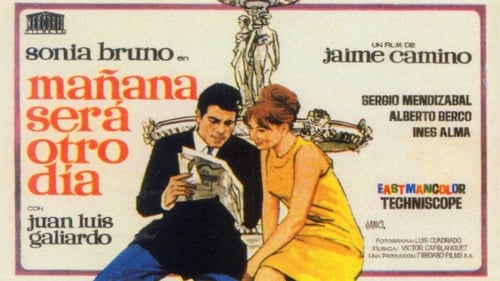
Writer
Paco and Lisa flee to Barcelona in a stolen car with the intention of building a future in show business. After unsuccessfully looking for work, the two youngsters will be immersed in crime and prostitution.

Screenplay
Этот фильм повествует о невзгодах молодого провинциала в его отношениях с утонченной барселонской буржуазией.

Story
Этот фильм повествует о невзгодах молодого провинциала в его отношениях с утонченной барселонской буржуазией.

Director
Этот фильм повествует о невзгодах молодого провинциала в его отношениях с утонченной барселонской буржуазией.





















